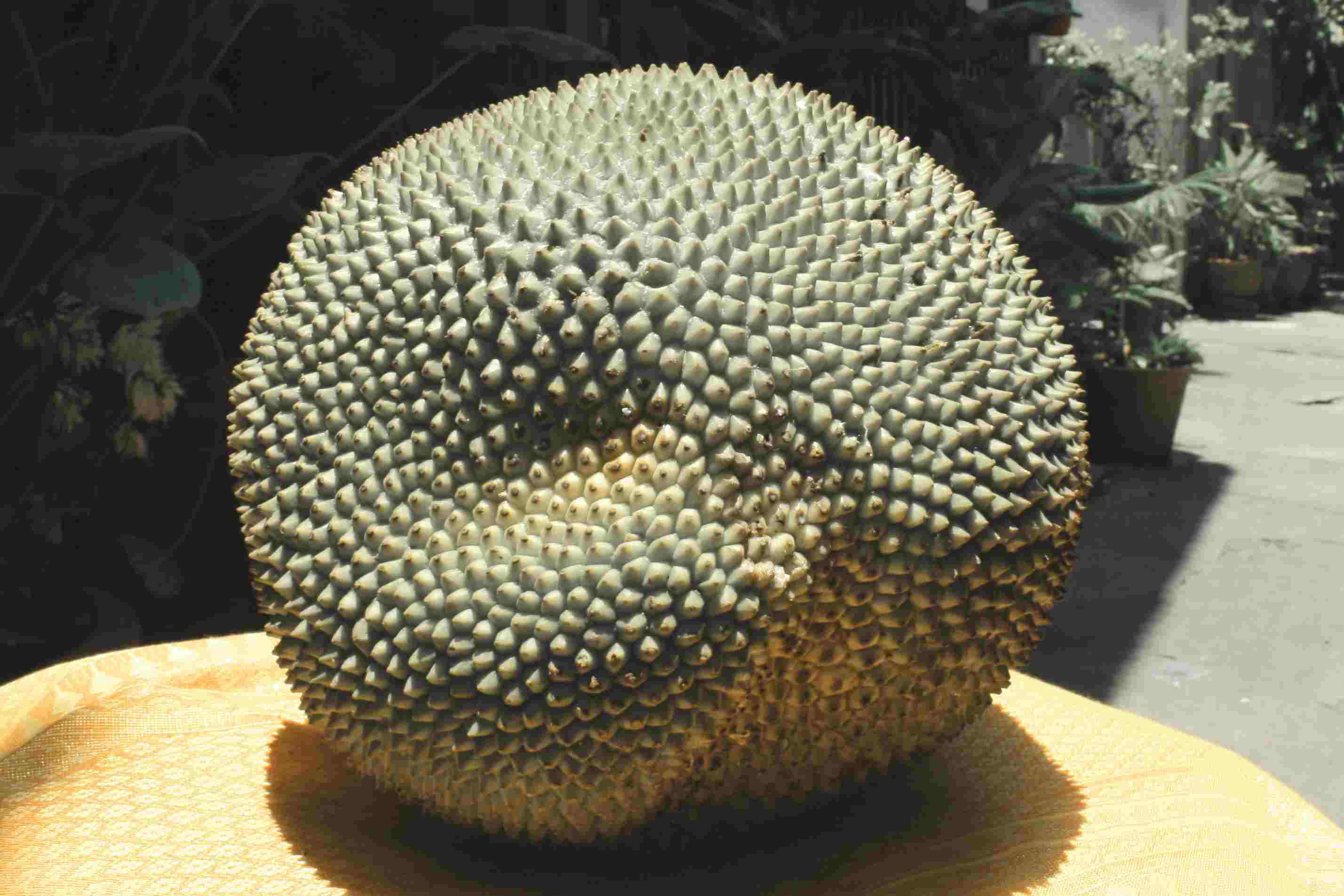
Jackfruit, which is is native to India, Bangladesh, Nepal, and Sri Lanka, is the largest tree-borne fruit in the world, seldom less than about 25 cm (10 in.) in diameter. The large varieties are found in areas blessed with Monsoon rains. The yellow flesh around the seeds is about 3–5 mm thick and has a sweet taste. The skin of the jackfruit is thick and prickly, and the flesh is starchy and fibrous. The jackfruit has played a significant role in Indian agriculture for centuries. Archeological findings in India have revealed that jackfruit was cultivated in India 3000 to 6000 years ago.
Jackfruit is a delicious and nutritious fruit that originates from Southeast Asia. The fruit is well-known for its unique flavor, size, and versatility, making it a popular ingredient in many international dishes. It is becoming increasingly popular around the world due to its numerous health benefits and iron-rich properties.
Jackfruit is an exotic fruit that is a part of the Moraceae family and grows on trees. It has a distinctive appearance, with its large, thorny green exterior and fleshy, yellow interior, which contains thousands of small, edible seeds. The fruit can weigh up to 35 kilograms and is often compared to the size of a watermelon.
The taste of jackfruit is sweet and fruity, with a unique flavor that is often compared to a combination of banana, mango, and pineapple. Due to its unique taste and texture, the fruit can be used in a wide range of savory and sweet dishes, including curries, stews, salads, smoothies, and desserts. It is a popular vegan and vegetarian alternative to meat due to its texture, which is similar to pork.
In addition to its delicious flavor and texture, jackfruit is also a nutritional powerhouse. It is rich in dietary fiber, vitamin C, vitamin A, potassium, and magnesium. The fruit also contains antioxidants and phytonutrients that can help fight inflammation and reduce the risk of chronic diseases.
One of the most significant health benefits of jackfruit is its iron-rich properties. It is an excellent source of non-heme iron, which is essential for the production of hemoglobin, a protein in red blood cells that carries oxygen throughout the body. A lack of iron in the diet can lead to iron-deficiency anemia, which can cause fatigue, weakness, and shortness of breath.
Consuming jackfruit can help increase iron levels in the body and prevent iron-deficiency anemia. A 100-gram serving of jackfruit provides around 1.7 milligrams of iron, which is approximately 9% of the daily recommended intake.
Jackfruit is also beneficial for digestive health. The high-fiber content of the fruit can improve gut health. Consuming jackfruit regularly can also help reduce the risk of colon cancer and other digestive disorders.
Another significant benefit of jackfruit is its low calorie and low-fat content. It is an excellent option for individuals who are trying to lose weight or maintain a healthy weight. A 100-gram serving of raw jackfruit contains only 94 calories and less than 1 gram of fat.
Despite its many health benefits, jackfruit is relatively easy to prepare and eat. To prepare the fruit, start by cutting it open and removing the fleshy interior. Remove the seeds by cutting them out of the fruit or by squeezing the flesh to pop them out. The flesh can be eaten raw or cooked and can be used in a variety of dishes.
When cooking with jackfruit, it is essential to understand its texture and flavor. The fruit has a meaty texture and can resemble pork when cooked. It is a popular ingredient in vegan and vegetarian dishes, including tacos, burgers, and BBQ sandwiches.
Jackfruit is a delicious and nutritious fruit that should be a part of everyone's diet. It is an excellent source of iron, dietary fiber, and other essential nutrients that can promote overall health and well-being. With its unique flavor and versatility, it is no wonder that jackfruit is becoming increasingly popular around the world. Whether eaten raw or cooked, jackfruit is sure to satisfy your taste buds and provide you with numerous health benefits.